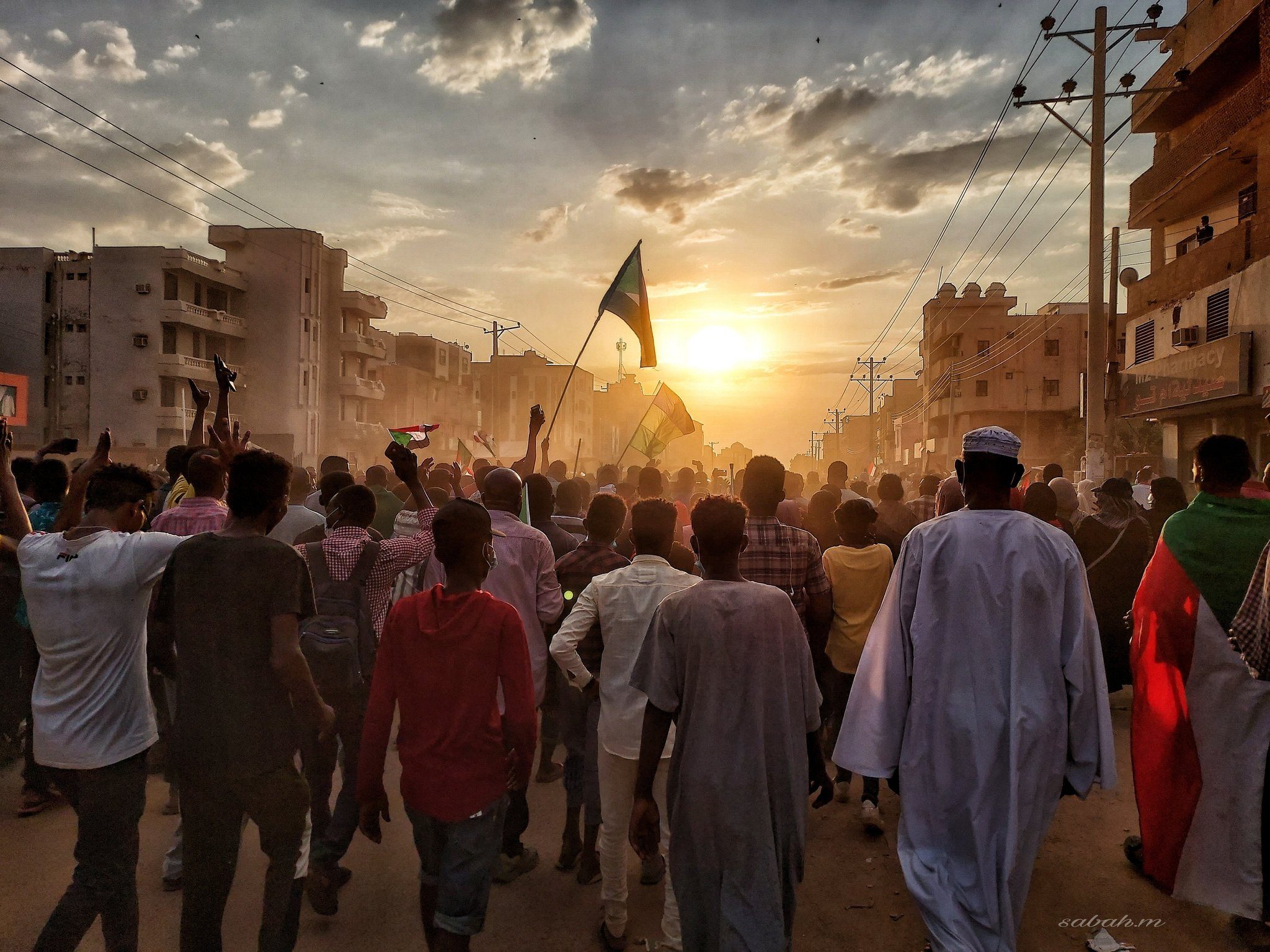Thousands have been forced to flee their homes in Sudan as fighting between the military and paramilitary leaves more than 500 dead in two weeks.
It has been almost two weeks since Sudan entered its deadliest conflict in years, forcing millions to face an uncertain future as warring parties wreak havoc across residential areas in the once bustling capital city.
Shocking footage that has emerged online since the violence erupted has shown buildings, shops and homes in tatters as civilians walk aimlessly in search for shelter and basic commodities.
Although far from home, Qatar-based Sudanese journalist Ola Diab joins some 60,000 anxious Sudanese expats in the Gulf state that have been hooked onto their phones in a dire need to keep up with the latest developments on the ground.
“I’m worried about my family. I’m worried about my fellow countrymen and women. I’m worried about Sudan in general and if I’ll ever be able to see it again,” Diab told Doha News on Wednesday.
On 14 April, fighting broke out in Khartoum between the Sudanese army, headed by General Abdel Fattah Al-Burhan, and the Rapid Support Forces (RSF), a paramilitary unit led by former militia leader General Mohamed Hamdan Dagalo, widely known as Hemedti.
In the immediate aftermath of the attack, Qatar joined its global partners to call on all sides in Sudan to “immediately” halt all fighting in the country. However, such calls appeared to fall on deaf ears, and by Thursday, the death toll surpassed 512, according to reports.
Ongoing shelling and crossfire have devastated hospitals in Khartoum, 72% of which are now reportedly unable to function and leaving scores of injured without crucial medical care. Diab says some patients who were admitted into hospitals prior to the conflict have passed away due to a lack of medication.
“People need to understand that people are innocently involved in a war that has nothing to do with them or their country. This is a fight for power[…]and there are two figureheads with very powerful forces fighting each other and people are just getting caught in the middle,” Diab said.
Over the last two weeks, numerous ceasefire attempts quickly collapse as both sides battled for power in an intense standoff that has seen civilians caught in the crossfire.
Witnesses on the ground say houses were looted and families attacked while fleeing to neighbouring countries, including Egypt and Chad.
“They all carry all their basic necessities, obviously leaving, leaving their homes, not knowing what’s going to happen to their homes, whether they’ll be destroyed because of all the missiles that are being fired or whether they’re going to be occupied by RSF,” Diab said, whose own family was en route to Egypt from Sudan at the time.
Some RSF fighters disguised themselves in civilian clothing before approaching families and launching an attack, per testimonies by witnesses on the ground.
“If you read the news, follow the news, you see that, they’re all saying that this could last for a very long time, whether a long time means months or years—I was hoping that this would just take a few days,” Diab, who last visited Sudan in 2019, said.
‘The revolution never stopped’
In 2019, the people of Sudan took to the streets calling for a civilian leadership and eventually toppled long-time ruler Omar Al Bashir. However, despite the success, a power vacuum in the aftermath of the revolt paved the way for the return of the RSF.
Protesters who had chanted ‘madaniya‘ or ‘civilian rule’ found themselves at the mercy of military leaders who signed a power-sharing agreement to form the Sovereign Council.
The declaration set late 2023 as the deadline for elections to elect a civilian administration. However, in 2021, the army seized power in a coup and all but disrupted the path to democracy.
“After Al Bashir was toppled, I think people just stopped following the news in Sudan. They just thought, ‘Ok, they succeeded, Al Bashir is gone’ and that was it. But no, that was just the beginning and the tip of the iceberg because there was a lot to come,” Diab said.
The current leader of the RSF, Hemedti, led the Janjaweed militia during the Darfur genocide in 2003 in which the group carried out war crimes in cooperation with Al Bashir.
At least 300,000 people were killed and around 2.7 million were displaced during the genocide.
In 2011, Doha sponsored a negotiation process that resulted in the Darfur Peace Agreement, which brought together the government of Sudan and the armed movements to end the six-year-long Darfur conflict.
Years later, Hemedti emerged once again and this time, more powerful.
“From the time Al Bashir was toppled in 2019 until the events of today […]the protest never stopped, the revolution never stopped and never ended when Al Bashir was overthrown,” Diab said, describing the RSF as “the greater evil.”
While Diab is unable to predict how and when the latest round of violence will end, she believes the future for Sudan is concerning.
“If this were to end, somebody has to be a victor, it’s either the RSF or the military[…] and neither of them are happy endings for the people of Sudan. Either way, the future is very, very, very concerning,” she said.
For now, the Sudanese said it is important to stand in solidarity with the people of Sudan by raising their voices and sharing their stories.
“Talk about what’s happening in Sudan as much as you can on social media on all platforms, because the more there is international pressure, the more they are likely to stop this war,” she said.







